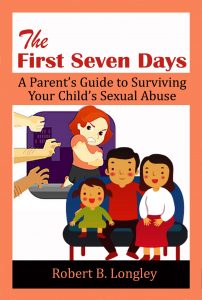Sexual assault on college campuses is almost a taboo subject in the academic world. You won’t see the following headline on any college brochure or web site. “You have a 1 in 4 chance of being sexually assaulted if you come here” . It’s not specific to any one college, but it tends to be a common estimate for the sexual assaults. It’s also terrible from a PR perspective. On the one hand colleges must report sexual assaults and other campus violence annually to the Federal Government. But on the other hand, that kind of transparency doesn’t do much to attract new students. In some cases colleges are doing everything possible to make the numbers they report as low as possible.
Accused of rape = expulsion
It makes for a great heading, but is it a great policy? Colleges often operate under their own rules when it comes to crimes. Some schools automatically turn over cases to local police, others prefer a disciplinary committee. Police reports generally ensure due process, but they attract negative attention to the school. Disciplinary committees may take a one size fits all approach that may or may not take state laws into account. They do take into account the stupidity of 18-22 year olds. They try to make decisions that don’t need to follow someone for the rest of their life.
Victim claims are often dismissed in favor of the greater good of the college. Also, some accused are expelled based on a lower standard of evidence than if it was handled by the police. And what about those police reports? In many cases, sexual assault cases handled through a disciplinary committee may never make it’s way to the police crime stats. Translation – lower numbers in the crimes reported area.
Through the Looking Glass
Colleges aren’t really part of the real world. Most of us that have survived the experience will look back and realize that we could not live like that today. Aside from the parties, all nighters and wearing pajamas to class, the rules on college campuses can be equally distorted. Sometimes in sexual assault cases, things happen at colleges that just make you go – huh!
Case in point is the recent lawsuit at the University of Kentucky. A professor recently resigned over sexual assault allegations. The victims demanded the school paper release the case details. The attorney general wants the details as well. The university is currently suing their newspaper to block the release of the information. They claim that they are preserving the rights of the victims. (These were the people that wanted the information released in the first place.) Again, back to the PR vs transparency issue.
Kimberly Theidon claims she was denied tenure by Harvard University. She will lose her job there due to her advocacy for victims of sexual violence at her school.
http://www.huffingtonpost.com/2014/04/17/harvard-retaliation-professor-tenure_n_5159995.html
One of the biggest college sex abuse scandals has been at Occidental College. Students and staff are often reprimanded or fired for speaking out about the school’s policy on sexual misconduct.
http://jezebel.com/colleges-silence-and-fire-faculty-who-speak-out-about-r-1586169489
http://www.cnn.com/2015/11/19/us/whistleblowers-campus-rape-
Star Trek Logic
Probably the most famous line from a Star Trek movie is Spock saying, “The good of the many outweighs the good of the few”. It is a point of illogic that the movie goes on to show that the opposite is true. Many schools haven’t figured that out. There are numerous incidents of schools sacrificing both students and staff to preserve the institution. What’s interesting is that some schools are as likely to dismiss a victim complaint as they are to expel an accused student just to make the problem go away.
The irony is that while they think they are preserving the integrity of the organization, in fact they are doing just the opposite. Schools need to deal with the pain of the negative activities within their population as openly as possible. Those who fail to learn from history are destined to repeat it.

